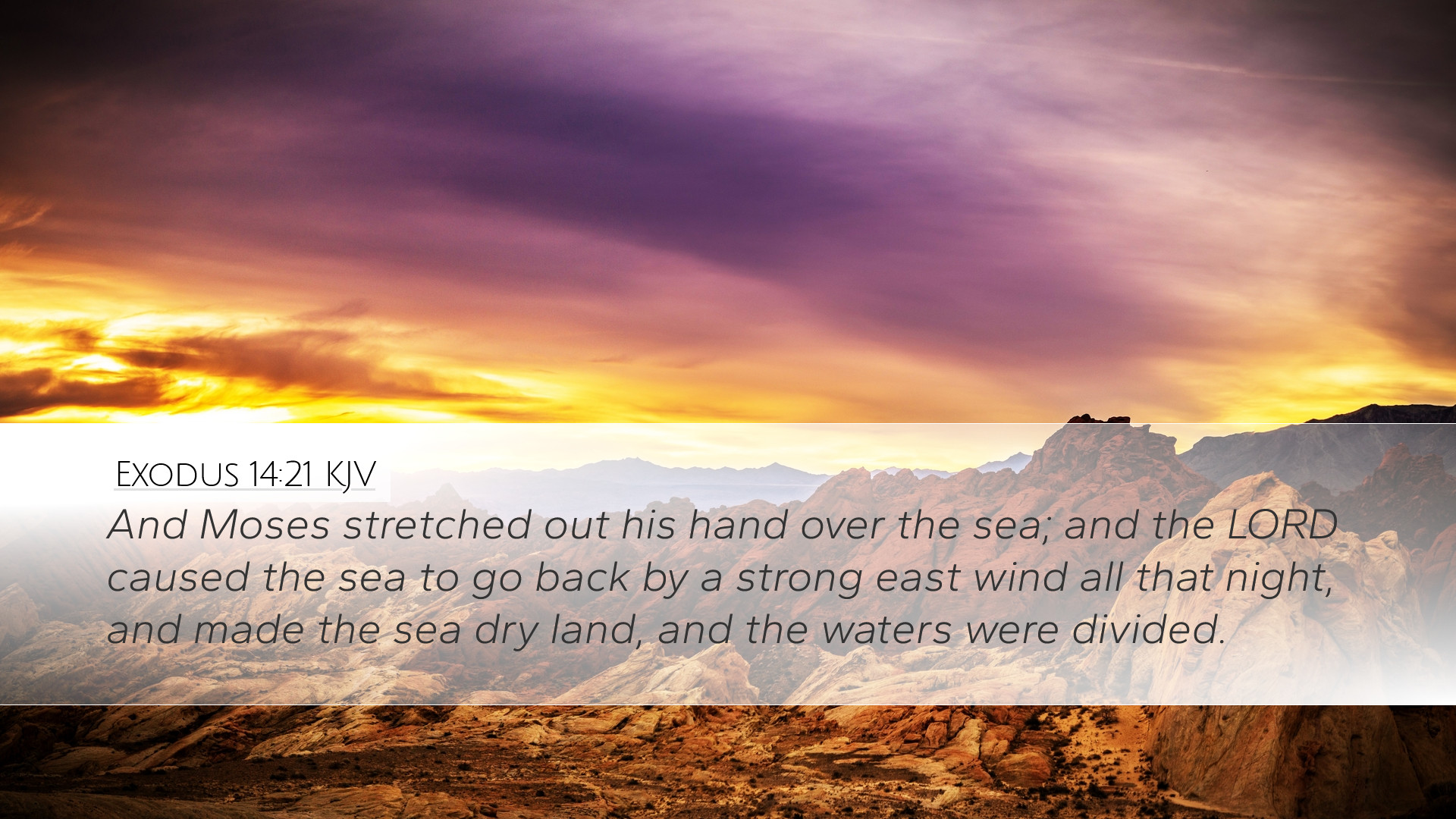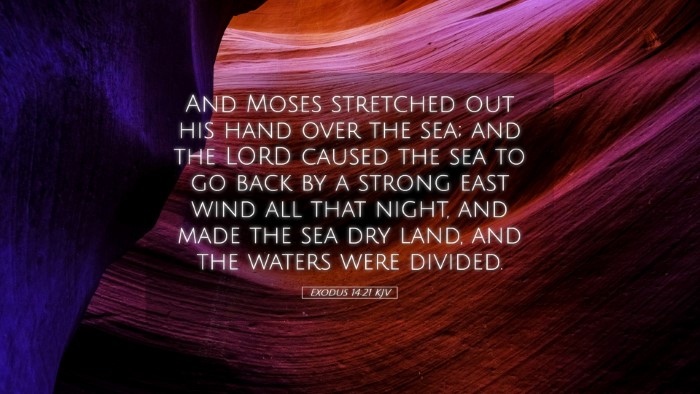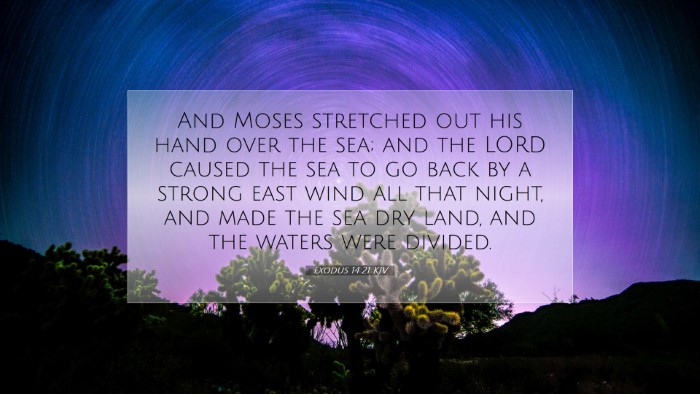Exodus 14:21 - A Commentary
Verse: "And Moses stretched out his hand over the sea: and the Lord caused the sea to go back by a strong east wind all that night, and made the sea dry land, and the waters were divided."
Introduction
Exodus 14:21 presents a significant moment in the narrative of the Exodus, illustrating the power of God in delivering His people from bondage. This verse encapsulates a miraculous event that not only demonstrates divine intervention but also serves as a theological foundation for understanding God's relationship with His people.
Contextual Analysis
The verse occurs in the context of the Israelites' escape from Egypt. After enduring years of slavery, guided by Moses, they find themselves trapped between the Red Sea and the pursuing Egyptian army. The miraculous parting of the sea becomes a pivotal act of salvation, which is crucial for Christians and Jews alike.
Theological Insights
Divine Sovereignty: The act of parting the Red Sea exemplifies God's sovereignty over creation. By manipulating natural elements such as the wind and water, God asserts His authority and power, providing a profound lesson on the nature of divine control in human affairs.
Faith in Action: Moses' action of stretching out his hand is key. This act reflects a profound faith in God’s promise and power. As noted by Matthew Henry, it symbolizes obedience; Moses did not see the immediate effects but acted on the promise of God to deliver.
Insights from Public Domain Commentaries
Matthew Henry's Commentary
Matthew Henry elucidates that this event serves not just as a historical account but as an emblematic moment for believers. Henry emphasizes the roles of faith and obedience, where Moses’ leadership mirrors the essential qualities needed in spiritual guidance. He interprets the strong east wind as a manifestation of God’s power, which separated the waters, reinforcing the idea that divine actions are often accomplished through natural means.
Albert Barnes' Notes
Albert Barnes highlights the transitional nature of this moment. The wind blowing all night signifies that God often works in the dark hours of our lives, where challenges seem insurmountable. He draws attention to the importance of divine assistance in times of crisis and reflects on the significance of the 'dry land', indicating God’s provision. Barnes emphasizes that God’s intervention changes devastating circumstances into opportunities for salvation and faith.
Adam Clarke's Commentary
Adam Clarke provides a detailed linguistic analysis of the original Hebrew terms used in this verse. He notes that "to go back" implies a forceful separation, symbolizing a barrier removed for the Israelites but looming over the Egyptians. Clarke’s commentary suggests that the waters represent both judgment and deliverance; thus, this moment is a dual agent of salvation for one and destruction for another. Clarke also notes that the east wind's usage reinforces God's ability to manipulate natural laws for His purposes.
Practical Applications
- Faith in Trials: This verse encourages believers to trust in God's deliverance amid challenges.
- Leadership in Crisis: Moses' role illustrates the importance of prayerful leadership in guiding others through difficulties.
- God’s Providential Care: Just as God provided a way through the sea, believers can trust God's provision in their life circumstances.
Conclusion
Exodus 14:21 remains a foundational passage that speaks to the heart of the divine-human relationship. Through the lenses of these commentaries, we see the attributes of God—His sovereignty, faithfulness, and providential care—underline the narrative. As students, pastors, and theologians reflect upon this text, the profound truths and theological implications continue to resonate today, encouraging a deeper faith and understanding of God's workings in the world.


